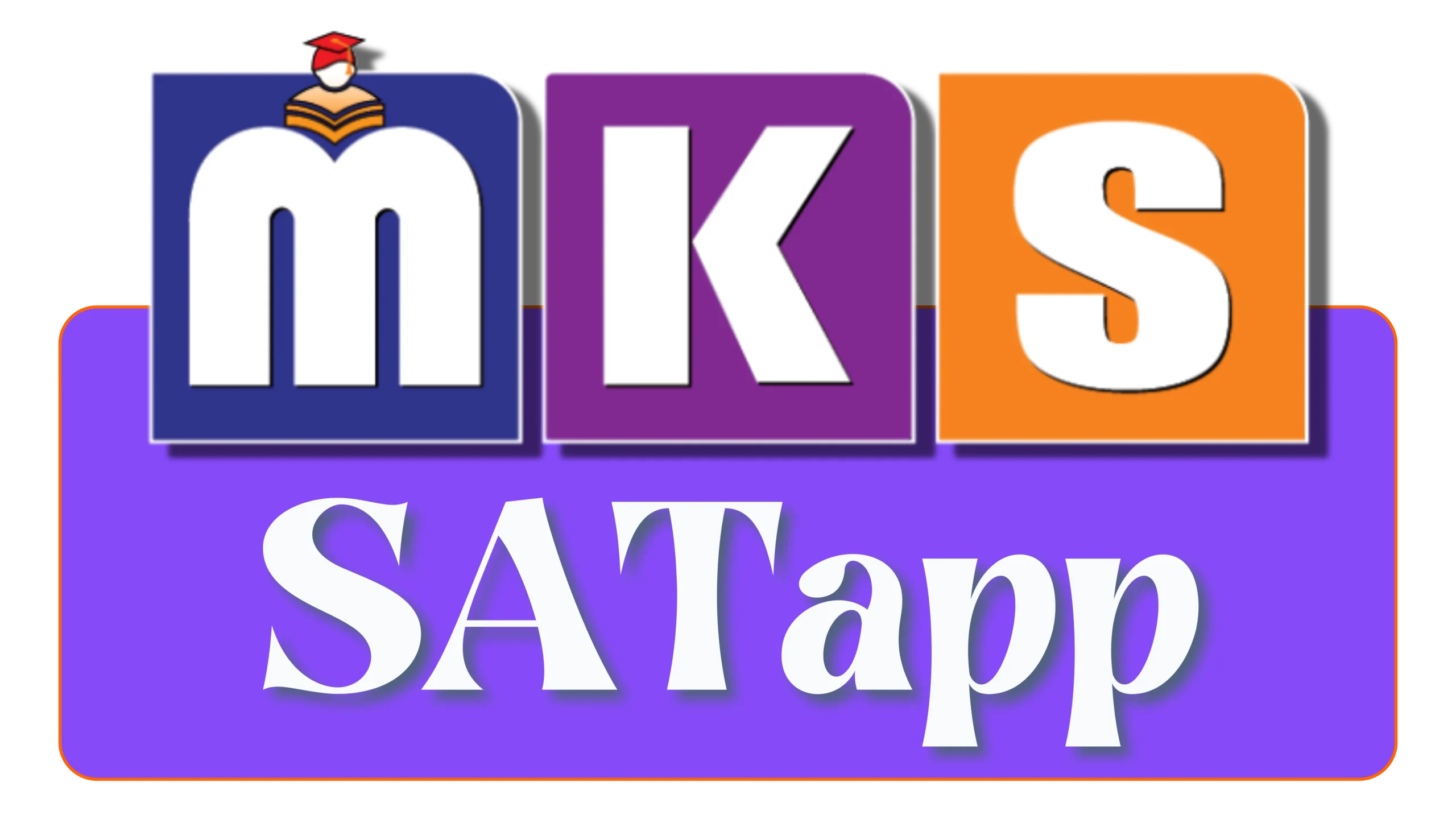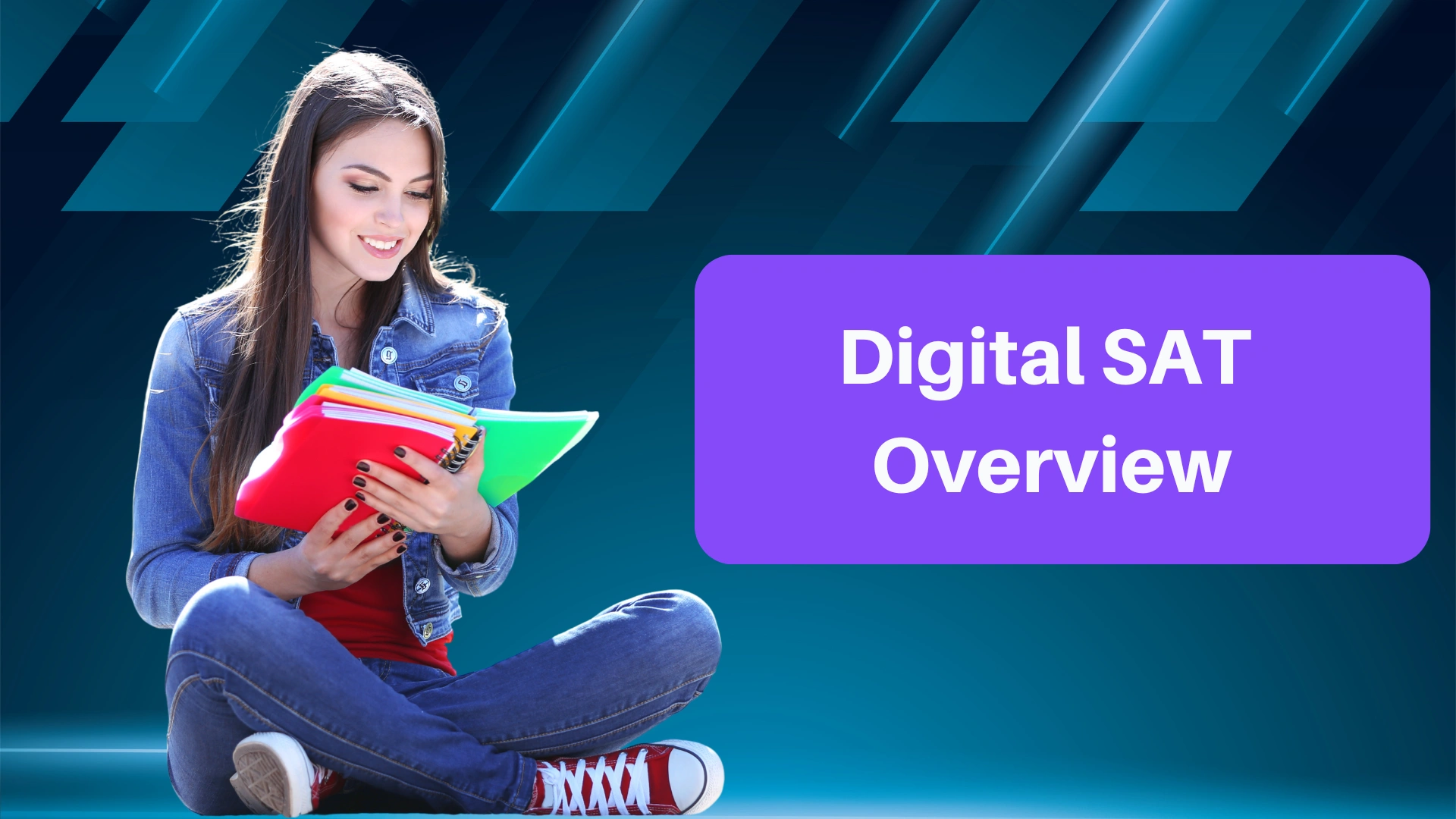Digital SAT Scoring and Timing
|
Section |
Score Range |
Time Allotted |
Number of Questions |
|---|---|---|---|
|
Reading & Writing |
200–800 |
64 minutes |
54 questions |
|
Math |
200–800 |
70 minutes |
44 questions |
|
Total |
400–1600 |
134 minutes |
98 questions |
Everything You Need to Know About the New Digital SAT
The SAT, a cornerstone of college admissions, has undergone a significant transformation. In 2024, the College Board introduced the Digital SAT, marking a shift from the traditional paper-based test to a streamlined, tech-friendly format. This change is designed to make the SAT more accessible, efficient, and relevant in the modern world. Here’s a comprehensive breakdown of what you need to know about the new Digital SAT:
Key Features of the Digital SAT
- Completely Digital
The SAT is now administered via a secure app, eliminating the need for paper and pencil. Students can take the test on their own laptops, tablets, or devices provided by the testing center. - Shorter Testing Time
The new SAT is 2 hours and 14 minutes, compared to the previous 3-hour format. This means less fatigue for students while still maintaining its rigor. - Section Changes
- The Reading and Writing sections are now combined into one section, with shorter and more focused passages. Each passage has a single question, making it quicker to navigate.
- The Math section includes an on-screen calculator (students can also use their own).
- Adaptive Format
The test uses adaptive testing technology, which means the questions adjust to your performance. If you do well in the first module of a section, the next module will have slightly harder questions, and vice versa. This allows for more precise scoring. - Faster Score Reporting
Students now receive their scores within a few days, compared to weeks in the past. - More Secure
The digital format makes cheating more difficult, as every test-taker gets a unique version of the exam.
Benefits of the Digital SAT
- Enhanced Accessibility: Digital testing ensures all students, regardless of location, have a consistent experience. Plus, students with accommodations can easily adjust settings like font size and color contrast.
- Improved Test-Taking Experience: With shorter passages and more focused questions, the Digital SAT is less intimidating and more engaging.
- Environmentally Friendly: By going digital, the SAT reduces paper usage significantly, contributing to sustainability efforts.
How to Prepare for the Digital SAT
- Familiarize Yourself with the Interface:
Use practice tools provided by the College Board or your test prep provider to understand the digital test format. - Leverage Official Practice Materials:
Access free practice tests on the Bluebook app, the official platform for the Digital SAT. - Strengthen Core Skills:
While the test format has changed, the foundational skills remain the same. Focus on improving reading comprehension, grammar, and math skills. - Take Mock Digital Exams:
Simulating the digital experience will help you get comfortable with time management and navigation.
How MKS Education Can Help
At MKS Education, we offer cutting-edge resources to help students excel in the Digital SAT. Our preparation program includes:
- 33 Full-Length Digital SAT Practice Tests with a 1-point margin of error.
- Access to class recordings, customized materials, and official questions.
- Flexible study modes (online, in-person, or hybrid) for maximum convenience.
- Expert instructors with over a decade of experience to guide you every step of the way.
Final Thoughts
The transition to the Digital SAT is a monumental step forward in standardized testing, making it more relevant and accessible for today’s students. While the format may seem unfamiliar at first, thorough preparation and understanding the new structure will set you up for success.
Ready to ace the Digital SAT?
Visit MKS Education to learn how we can help you achieve your dream score!

